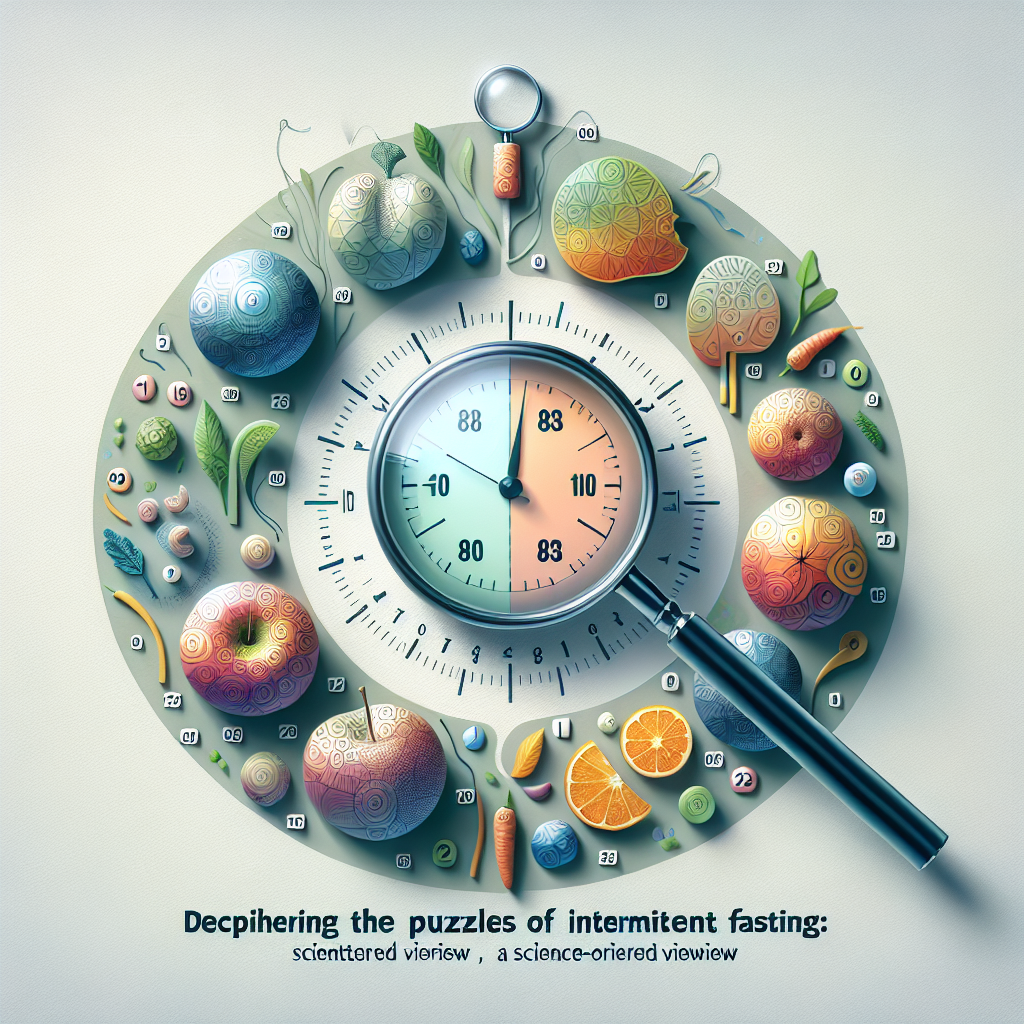### Unraveling the Mysteries of Intermittent Fasting: A Science-Based Perspective
Intermittent fasting (IF) has taken social media and the health and wellness industry by storm. This dietary trend, lauded for its weight loss and health benefits, alternates periods of eating and fasting. Here, we delve into the scientific underpinnings of IF and its potential effects on human health.
#### What is Intermittent Fasting?
IF is an eating pattern that cycles between periods of fasting and eating. It does not dictate what foods to eat, but rather when to eat them. Most common forms include the 16/8 method, Eat-Stop-Eat, and the 5:2 diet. Though it may seem like a recent health trend, fasting has been practiced throughout history for various cultural, religious, and health reasons.
#### The Science Behind IF
The benefits of IF stem from how our bodies process energy. When we eat, glucose is stored in the liver as glycogen. In a fasted state, the body converts glycogen back to glucose to provide energy. After approximately 10-12 hours of fasting, all glycogen reserves are depleted, and the body starts burning fatty acids – a state known as ketosis.
##### The Metabolic Switch
The transition from using glucose to fatty acids – a metabolic switch – has significant benefits. It increases fat burning, reduces inflammation, and enhances brain function. The neuroprotective effects are due to the production of ketone bodies that stimulate the release of brain-derived neurotrophic factor (BDNF). BDNF promotes the health of neural cells and can enhance memory, mood, and cognitive function.
##### Hormonal Benefits
IF also affects hormone levels. It lowers insulin resistance, reducing your risk of type 2 diabetes. Human growth hormone levels rise, facilitating fat burning and muscle gain. It may also influence changes in the function of genes linked to longevity.
#### Health Benefits Supported by Science
Research on IF demonstrated its potential in:
1. **Weight and Body Fat Loss**: Studies indicate IF increases metabolic rate, helping individuals lose weight and belly fat without consciously having to restrict calories.
2. **Improved Brain Health**: IF boosts BDNF levels, potentially aiding in the prevention of neurodegenerative diseases like Alzheimer’s.
3. **Cardiovascular Health**: It may help reduce “bad” LDL cholesterol, blood triglycerides, and inflammatory markers – all known risk factors for heart disease.
4. **Longevity**: Studies on rats showed that IF extends lifespan as effectively as caloric restriction.
#### The Cons of IF
No dietary trend is without potential drawbacks. IF isn’t applicable to everyone – some may find it difficult to adhere to such a lifestyle. It could lead to overeating during non-fasting periods or negatively impact those prone to eating disorders. Also, it might not be suitable for pregnant women, adolescents, and individuals with specific health conditions.
Before changing your diet significantly, seek professional advice from healthcare or nutrition specialists.
#### Conclusion
Intermittent fasting presents intriguing potential for weight loss, heart health, and longevity. While the research is promising, more human-specific studies are needed to fully understand its long-term implications and potential benefits. Always consider professional advice before diving into any new health regime.
*References will appear as footnotes in the actual blog post.*


